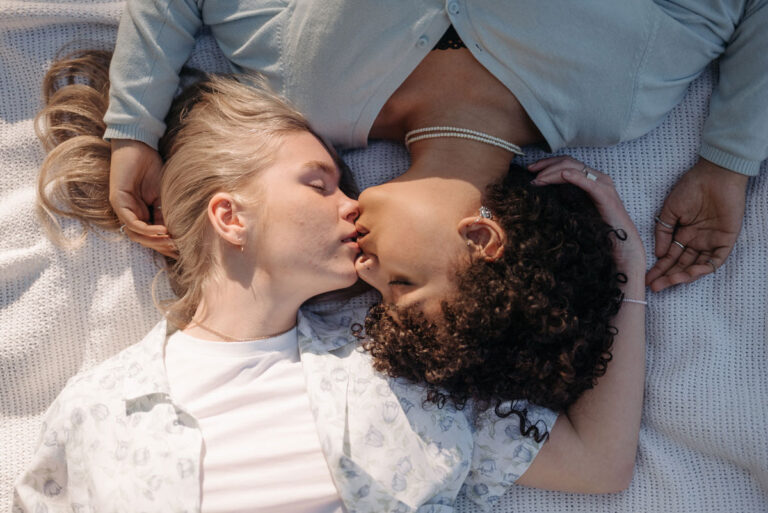How have LGBTQ+ rights progressed around the world in 2021?
It’s been a long year. I’m sure I’m not alone in feeling a tragic and distressing sense of déjà vu. But, as we near the end of 2021, let’s try and look on the bright side of the rainbow: how have LGBTQ+ rights notably and noticeably progressed around the world this year?
In the UK, unfortunately, very little has changed. While endless promises were previously made, conversion therapy still remains legal in the country. A public consultation was held, and despite overwhelming response in support of a ban, the government has extended the deadline for responses. Some far-right and evangelical groups seem to hold the belief that opposing someone’s gender transition is not a form of conversion therapy, but rather a symbol of ‘compassion’ that should be allowed—thus, the debate rages on. We might see meaningful reform next year, fingers crossed.
In an important step, 21 December saw the Women and Equalities Select Committee publish the results of the consultation held into reform of the Gender Recognition Act (GRA). The committee, chaired by Tory MP Caroline Nokes, made a number of urgent recommendations, as well as noting scathing criticisms of the government.
They conclude that the government “failed in its responsibilities with its botched handling of Gender Recognition Act reform—and should seek to fix its wrongs by 2023,” reported Pink News. This is, in general, very good news: most of the recommendations are in line with demands from prominent LGBTQ+ advocacy groups, and much of the testimonies from prominent transphobic groups were ignored. However, whether or not the government will act is another issue, given the lack of support for the reform from many prominent equalities ministers, such as Liz Truss, who is now Minister for Women and Equalities, Foreign Secretary, and in charge of Brexit. What could go wrong, right?
Over in the US, President Joe Biden promptly reversed many of the Trump administration’s anti-LGBTQ+ policies, such as the ban on trans people serving in the military, upon his arrival in office. The current administration has largely supported LGBTQ+ rights across the country, with the Departments of Education and Housing taking pro-LGBT stances in federal lawsuits.
Biden also restored the tradition of marking June as Pride Month with an official proclamation—during which the Department of State began the process of “including a non-binary gender marker and have modernised existing requirements for updating gender markers on United States passports”—whereas similar reforms were outright dismissed in UK court in December.
France and Canada both successfully pushed through bans on conversion therapy and a High Court ruling in Madras effectively banned the practice in India, just four years after homosexuality was decriminalised in the country.
Same-sex marriage was approved in Switzerland through its September referendum, passing with 64.1 per cent of the vote. South Africa and Argentina—two of the world’s most southernly countries—both began legally recognising non-binary gender identities in 2021.
Before leftist Gabriel Boric won the Chilean election, the country legalised same-sex marriage and adoption in December, which was deemed as a significant blow to his right-wing rival José Antonio Kast. Several Mexican states also introduced same-sex marriage (Querétaro, Sinaloa, Sonora, and Zacatecas), while others passed laws banning conversion therapy (Colima, Tlaxcala, Yucatán, and Zacatecas again).
Both Bhutan and Angola decriminalised homosexuality, meaning only 69 counties remain that still criminalise homosexual activity, albeit to varying extents. And, while male homosexual activity is still illegal in Namibia, in October “a court found that the constitution bans discrimination based on sexual orientation.”
Not everything was positive, unfortunately: Victor Orban’s government continued to make life harder for LGBTQ+ people in Hungary—but the country was still able to host games for the Euro 2020 (held in 2021), despite significant protests.
A record number of openly queer athletes participated in the Tokyo Olympics, more than three times as many at the Rio games in 2016. And Josh Cavallo, who plays for Adelaide United in Australia’s A-League, became the openly gay top-flight men’s footballer—as well as a vocal critic of the 2022 World Cup, set to be held in Qatar.
Let’s end with something light, shall we? We also had a record amount of Drag Race—including not one, but two seasons of RuPaul’s Drag Race UK—with several additional international franchises announced. 2022 looks to be the year RuPaul takes over the world once and for all, or will it be the tipping point for drag domination? Only time will tell.





